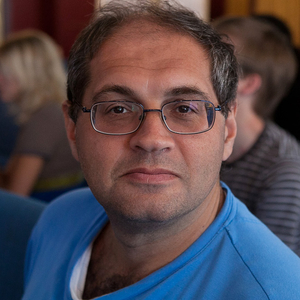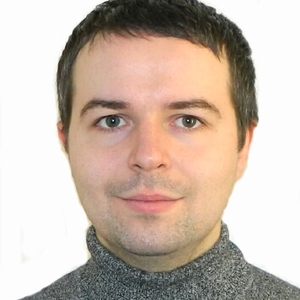Study
A successful career in physics is impossible without a deep knowledge of her language – mathematics. The goal of the course is to teach basic mathematical methods used in modern branches of physics: condensed matter physics, the theory of disordered systems, low- dimensional nanostructures physics, etc. The course is focused on the development of mathematical thinking and the ability to apply well-developed mathematical techniques for solving commonly used types of problems in physics. Classes are held in the form of seminars, where in the first part theoretical foundations of the mathematical methods used are given, and then examples of problems are treated and solved. A wide range of issues from the theory of functions of a complex variable and special functions to selected questions of the percolation theory and the foundations of group theory are considered.
I. Theory of functions of a complex variable
1) Functions of a complex variable, a mapping and a branch point, limit and continuity of functions of a complex variable, derivative of a function of a complex variable, Cauchy-Riemann condition.
2) Integration of the function of a complex variable, singular points, Laurent series, residue theorem.
3) Сonformal mapping.
II. Calculation of integrals and special functions
1) The use of symmetry in the calculation of integrals of a function, integrals of even and odd functions, integration over a contour, Jordan's lemma.
2) Gamma function, Beta function, error function, integral exponential function, integral cosine and sine.
3) Solution of the Laplace equation in cylindrical and spherical coordinates, Bessel functions and their properties, spherical functions and their properties.
III. Approximate methods in physics
1) Asymptotic series, approximate methods for solving algebraic equations, the method of steepest descent (stationary phase method).
2) Quasiclassical approximation in quantum mechanics (Wentzel-KramersBrillouin method).
3) Variational methods in quantum mechanics.
IV. Disordered systems and nonlinear phenomena
1) Percolation (percolation) in a lattice with defects, site percolation problem, bond percolation problem, clusters, percolation transition for various types of lattices.
2) Non-linear Schrödinger equation, tackling infinities in physical systems.
3) Linearization of nonlinear systems of differential equations, singular points of the phase space of a nonlinear dynamical system, bifurcation, attractor of a dynamical system.
V. Integral transformations and integral equations
1) Fourier transform, delta function and Green function.
2) Laplace transform, types of integral equations and methods for solving them.
VI. Group theory and its applications
1) Definitions and properties of an abstract group, conjugacy classes, translational and rotational symmetry groups and the associated conservation laws, the Bloch theorem, the Wigner theorem, point symmetry groups.
2) Representations of groups and their properties, character of representation, product of representations, selection rules, method of invariants.
[1] Arfken G.B. and Weber H.J. (2001), Mathematical methods for physicists (5th edn.), Academic Press, ISBN 0-120-59826-4.
[2] Mathews J. and Walker R.L. (1970), Mathematical Methods of Physics (2nd edition), Benjamin, ISBN 0-805-37002-1.
[3] Spiegel M. R., Advanced Mathematics for Engineers and Scientists, (Chapter 13: Complex Variables and Conformal Mapping).
[4] Spiegel M.R., Complex Variables, (any edition), McGraw-Hill.
[5] Stauffer D. (1985), Introduction to Percolation Theory, Taylor and Francis, ISBN 0- 850-663156 (UL: 530.13 STA).
[6] Efros A.L. (1986), Physics and Geometry of Disorder, Mir Publishers.
[7] Anselm A. (1981), Introduction to Semiconductor Theory, Mir Publishers.
Grading policy:
The mark for a colloquium higher than or equal to «3» is an exam qualification with 0 penalty points.
If the mark for a colloquium below «3» or if the colloquium was not written, then a student is allowed to the exam with 20 penalty points, which are subtracted from the total number of points for the exam.
At the discretion of the teacher for admission to the exam without calculating the penalty points, the student may be credited with performing general or individual homework for the course.
Maximum mark for the written exam is 100 points:
To get mark “3” minimum 40 points should be attained.
To get mark “4” minimum 50 points should be attained.
To get mark “5” minimum 70 points should be attained.
Less than 40 points attained means the exam is not passed.


